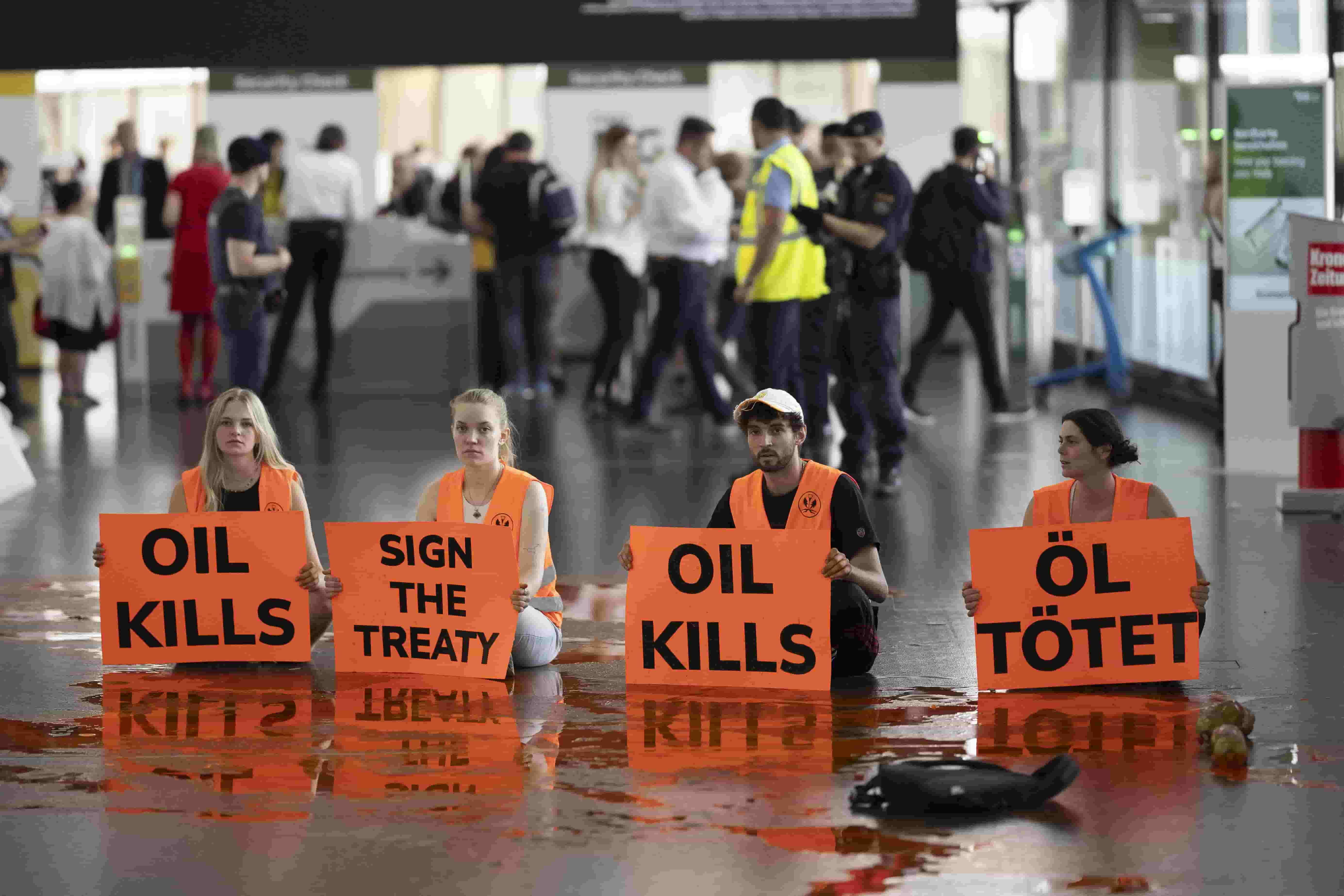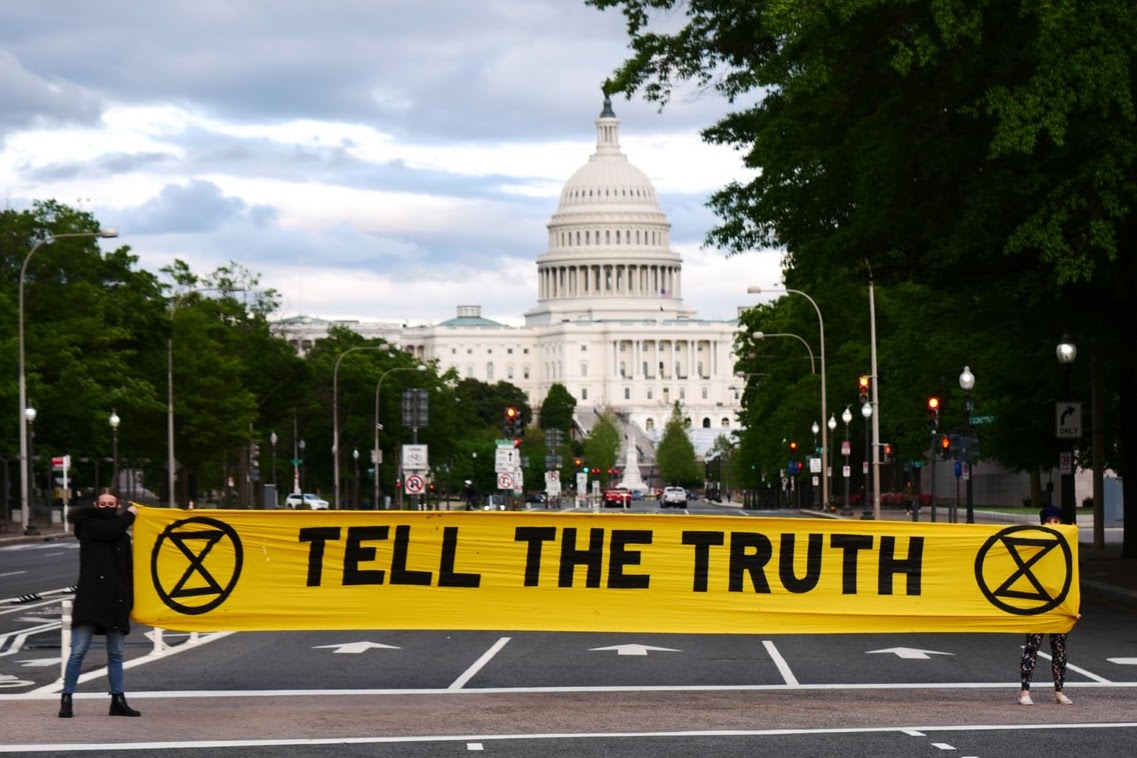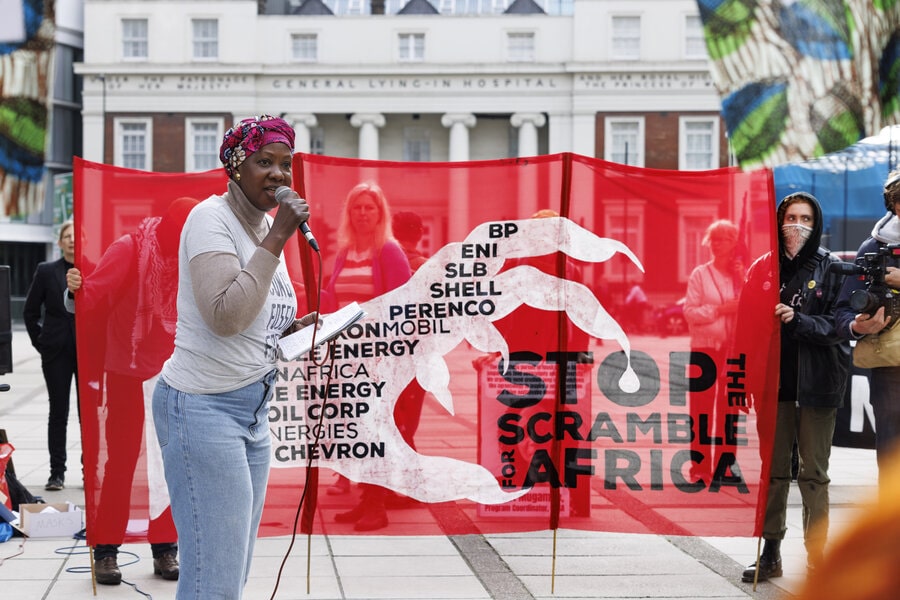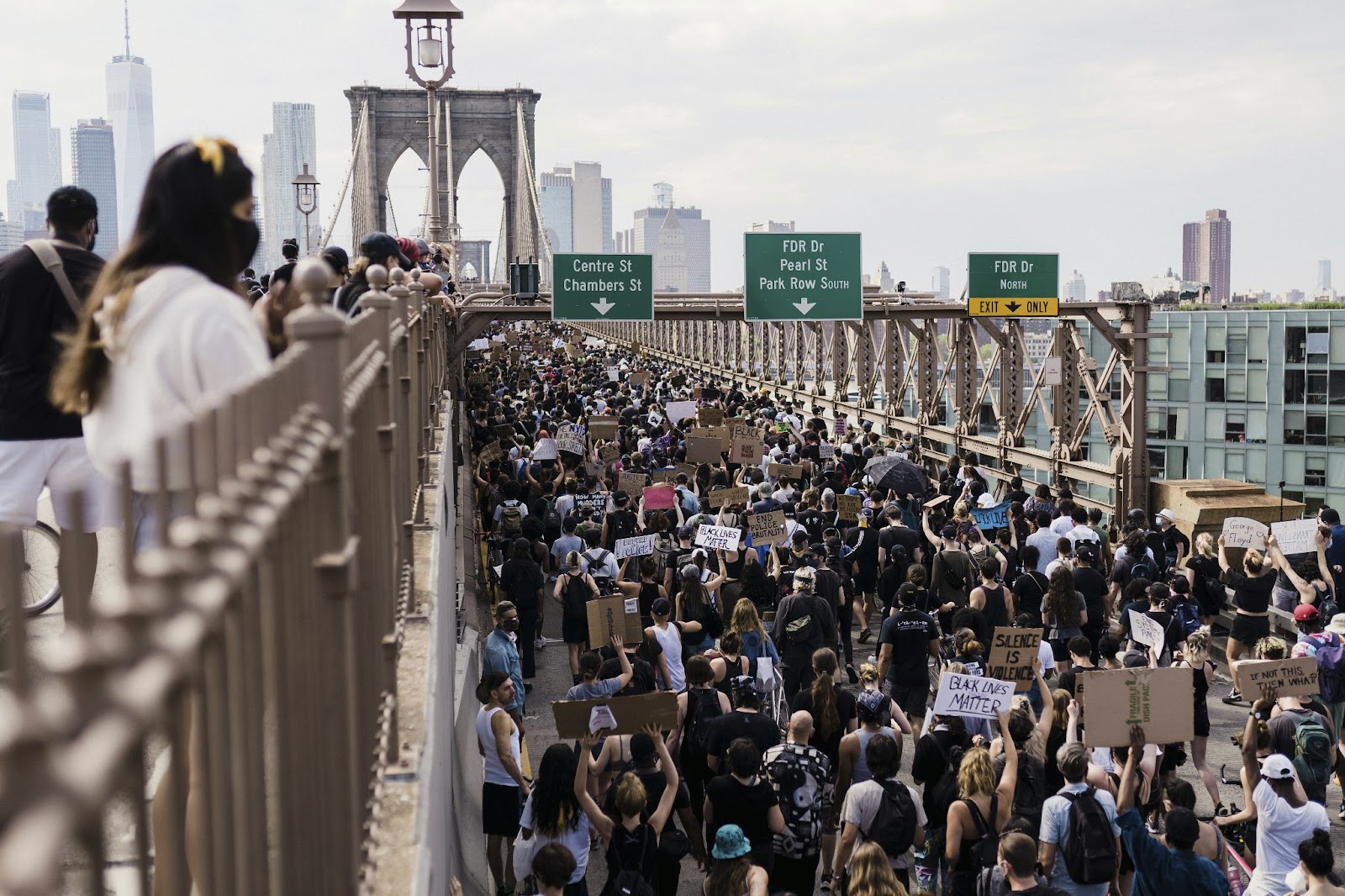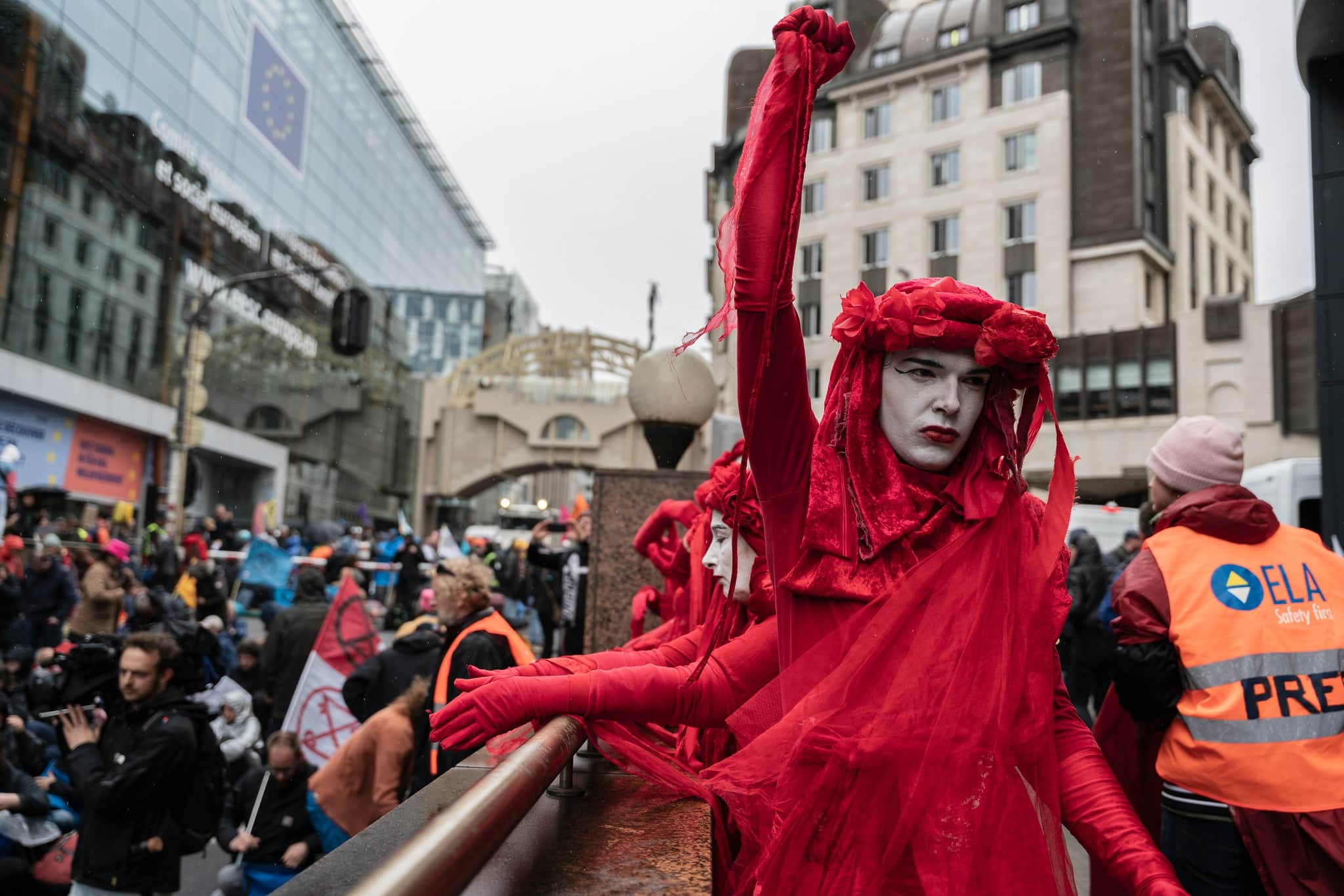
Police arrest some very dangerous ‘Dirty Scrubbers’ before a day of action against insurance companies in the heart of London, UK.
This issue: Insure Our Future! | DRC vs Green Growth | Founder of XR Zambia
Dear rebel,
Without insurance, fossil fuel projects like oil pipelines and coal mines can’t operate. And just 20 companies insure 70% of all fossil fuel projects. Yet these corporate linchpins to our ecocidal system have mostly flown under the radar. Until now.
For one week, thousands of activists launched a hundred coordinated actions targeting major insurance companies right across the globe, demanding that they pull the plug on the fossil fuel industry.
And at least some insurance executives were listening. Find out more about the Insure Our Future campaign, and the precious victories, in Action Highlights.
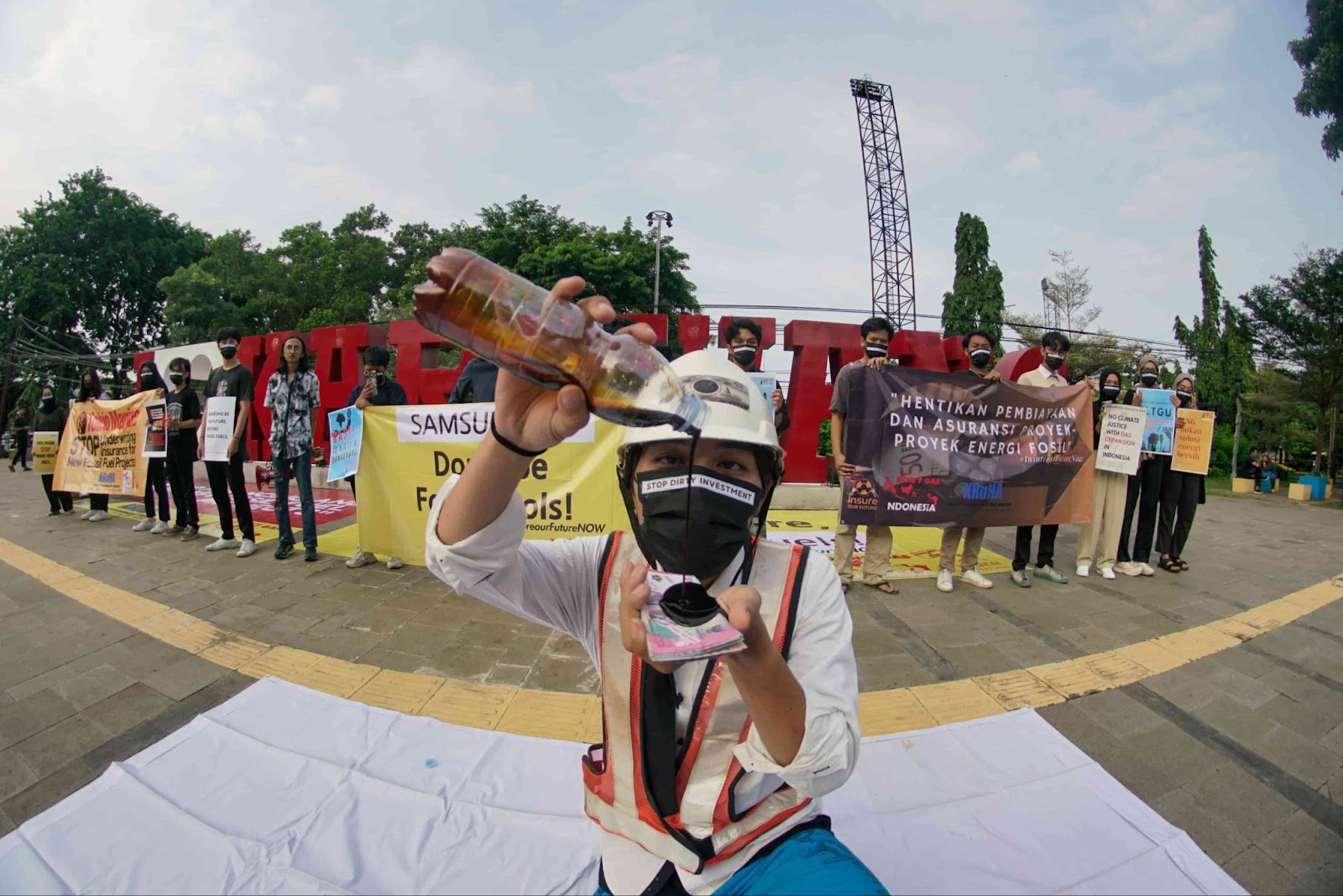
An activist pours ‘oil’ onto money during an Insure Our Future rally in Indonesia.
You can also read a Special Report about how rebels in the DRC are coping with war on their doorstep. A brutal Rwandan-backed militia has invaded the mineral-rich east of the country, displacing more than 10 million people. We speak to members of XR Goma University as the militia approach their city.
In Action Round Up we cover the return of A12 blockades by Dutch rebels, the continuing protection of arctic wetlands by Finnish rebels, and many more inspiring acts of disruption by rebels around the world. And finally in Humans of XR we speak to the founder of XR Zambia about her journey into ecoactivism.
Insurance companies are meant to protect us from risk, not pave the way to a world completely overrun with it. As long as the industry keeps backing ecocidal fossil fuel projects, we must keep disrupting their business and holding their executives to account. No insurance, no drilling. No justice, no peace.
This newsletter is available in multiple languages. Use the globe icon (top right) to change language.
This newsletter is brought to you by XR Global Support, a worldwide network of rebels who help our movement grow. We need money for this crucial work.
Contents
- Action Highlights: Insure Our Future!
- Special Report: DRC Bleeds For Green Growth
- Action Round Up: Netherlands, Rwanda, South Africa, Hungary, Italy, Finland, Germany, Belgium, France, Ireland, Denmark
- Humans of XR: Precious, Zambia
- Must Reads: US Methane Insurers, Plastic Recycling Fraud, Goma Rap Video, UN Global Resources Outlook, Mothers* Rebellion
- Announcements: Earth Day, Plan Z Short Film
Action Highlights
Insure Our Future, Not Fossil Fuels!
26 FEB–3 MARCH | Global
Insure Our Future, a worldwide coalition of activist groups, has finished a week of action that saw rebels occupy buildings and stage performances around the globe to highlight how the often-overlooked insurance industry facilitates the climate crisis.
Rebels joined thousands of activists in 31 countries spread across every continent bar Antarctica to launch actions targeting major insurance firms. And some of those actions resulted in precious victories.
Due to a lack of transparency in the insurance industry, it is not always clear which projects are backed by which companies. But what is clear is that most insurance firms are prioritising unethical and downright hypocritical policies that are damaging communities in every region of the world.
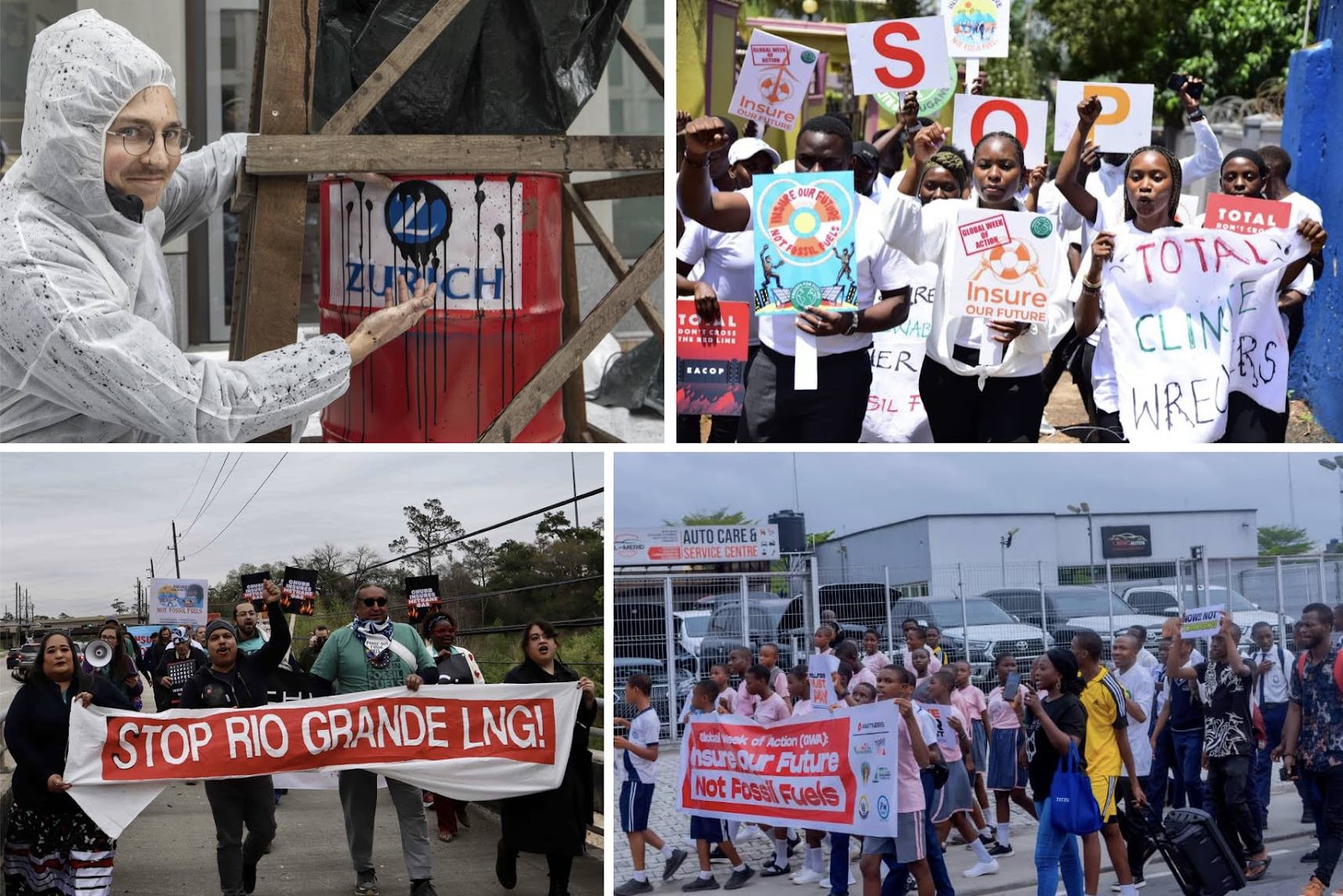
Rallies in (clockwise from top left) Switzerland, Uganda, Nigeria, USA.
American homeowners are increasingly being told that their properties, damaged by extreme weather, are ‘uninsurable’ - while new infrastructure for the nation’s liquified methane gas exports is readily covered. Grassroots organisations in Texas and Louisiana peacefully occupied the Houston lobbies of Chubbs and AIG to condemn these major insurers for enabling emissions while dismissing the consequences.
In London, rebels allied with various organisations to occupy the offices of five major insurance companies, and later an 800-strong Carbon Bomb Defusal Squad linked hands around insurer Llyod’s of London to block anyone from entering. Insurance executives were targeted after work too, with rebels visiting local pubs to strike up chats with them about climate change.
In a sign of how repressive the UK is becoming, a greenwashing performance by the ‘Dirty Scrubbers’ was abandoned after they and their greenwashing machine were arrested en route. But XR UK’s impressive campaign did bear fruit - the CEO of insurance company Zurich is due to hold talks with activists, and insurer Probitas has withdrawn support for the Pan-African-pipeline EACOP and a new UK coal mine.
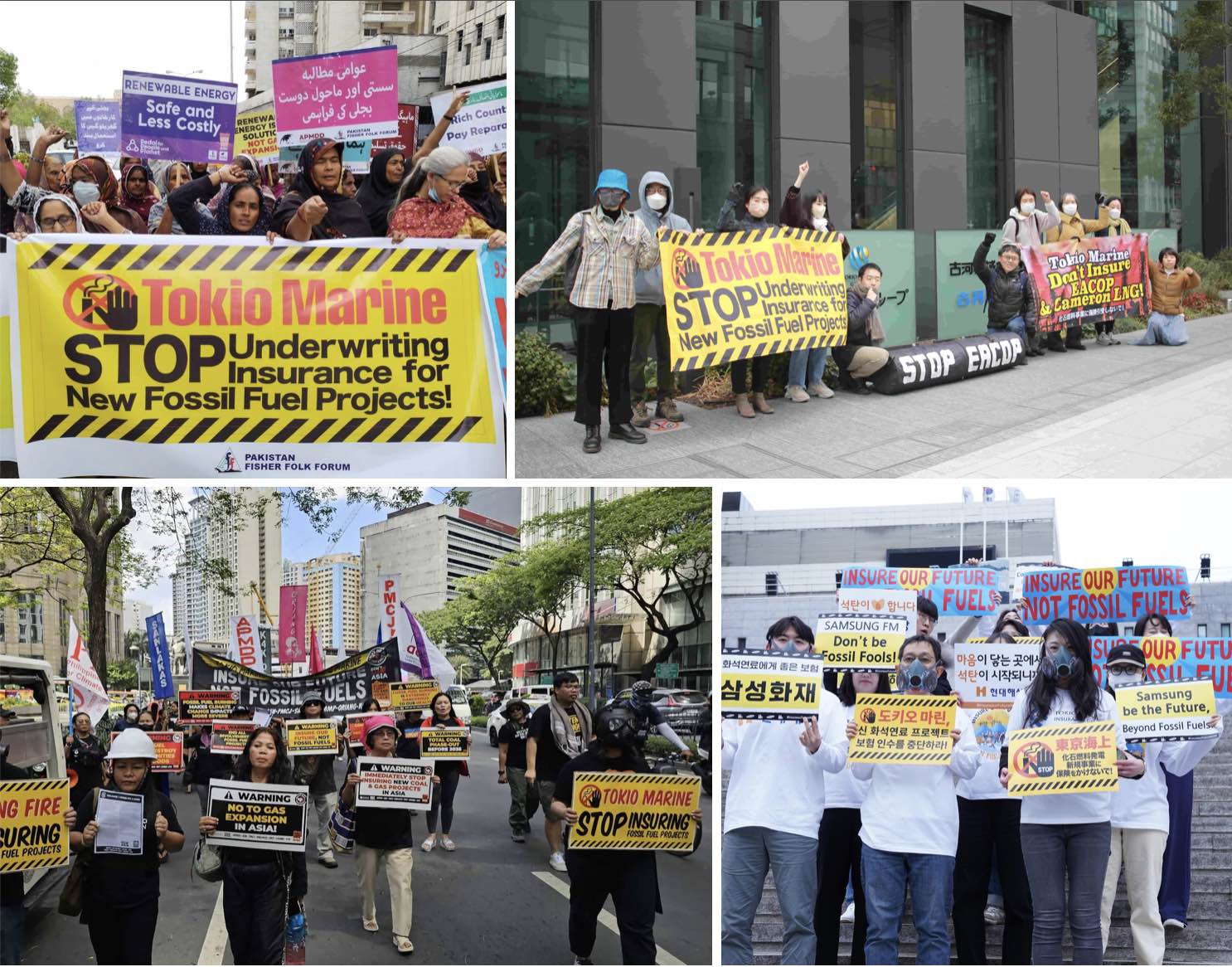
Rallies against Tokio Marine in (clockwise from top left) Pakistan, Japan, South Korea, The Philippines.
The call to abandon EACOP echoed around the world, with Fridays for Future Uganda staging a special dance performance and Stop EACOP activists in Tanzania calling on Chinese state-backed insurers to drop the ecocidal project.
Tokio Marine was singled out by activists across Asia, including in Indonesia, the Philippines, Pakistan and Japan for its support of global coal production and its withdrawal from the Net Zero Insurance Alliance after pressure from fossil fuel lobbyists.
There were more than 100 actions over the week - too many for one newsletter. But it’s clear Insure Our Future has mobilised an incredible campaign, and applied the right kind of pressure on an industry that’s spent too long flying under the radar.
Follow Insure Our Future campaigns on their website.
Special Report
DRC Bleeds For Green Growth
JAN / FEB | Democratic Republic of Congo (DRC)
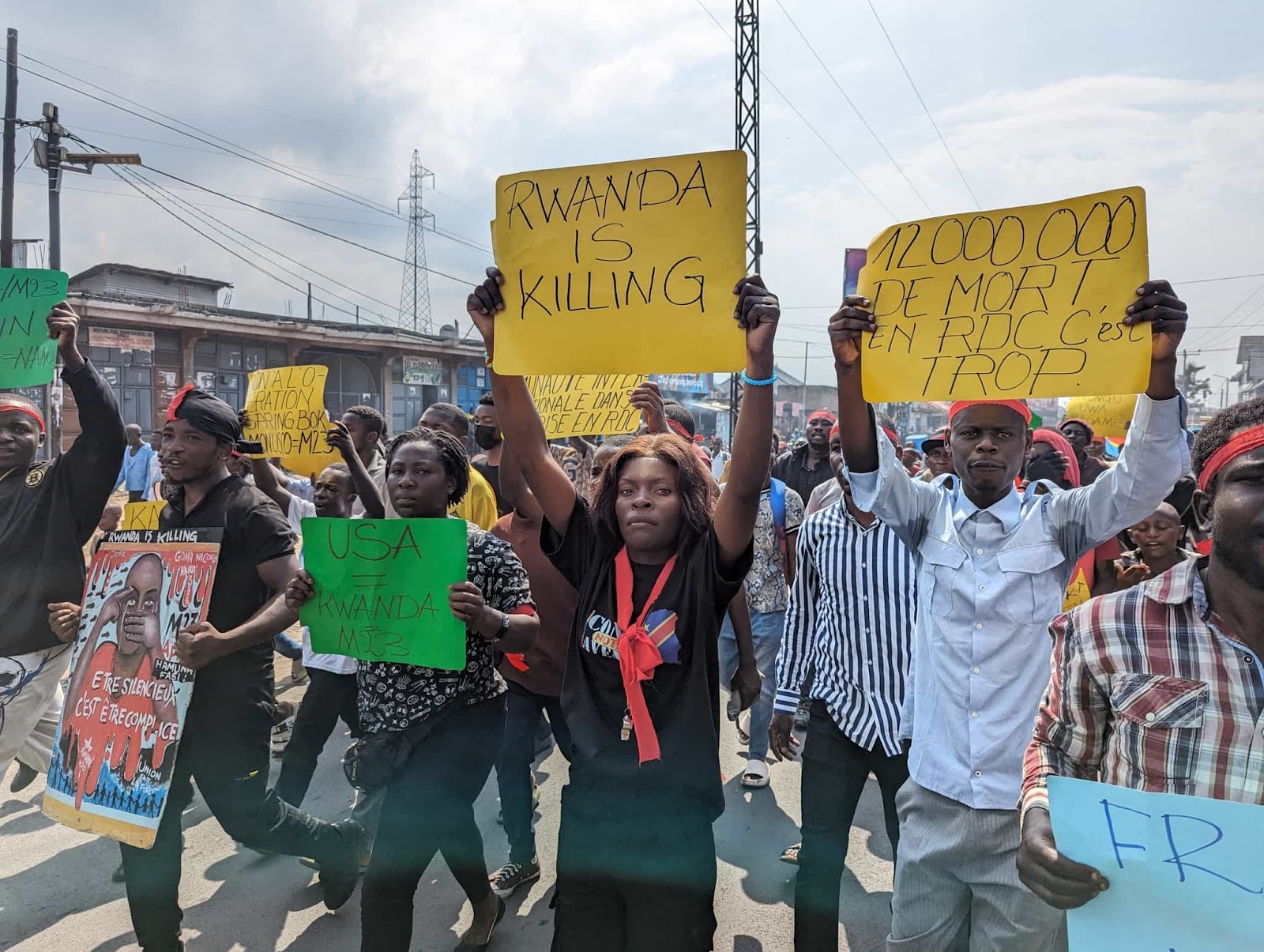
Activists in Goma denounce state and international inaction after savage attacks by a Rwandan-backed militia. Photo: LuchaCongo.org
“Inside every phone there is the blood of a Congolese person.” These words from a rebel in Goma, a city in the Democratic Republic of Congo (DRC), encapsulate the deadly links between war, the plunder of resources, and climate breakdown.
Nowhere is this more devastatingly clear than in the DRC, where M23 militias financed by the Rwandan government, which is in turn funded by the UK, the USA, and many others, are committing mass murder and ecological destruction as they surge into the east of the country.
On the rare occasion that the mainstream media covers the DRC, it is portrayed as a poor nation with a “complicated” conflict-riven backstory. But this framing omits the catalyst for the region’s violence since its colonisation - resource robbery.
“The conflict, which has persisted in the east of the DRC for almost 30 years, and is the deadliest since the Second World War, is mainly economic,” explains Nobel Laureate Dr. Mukwege. Since 1996, more than 10 million people have been killed, with countless more being displaced, raped, or forcibly recruited (even as children!) into armed groups. “The illegal trade in minerals is recognized as a root cause.”
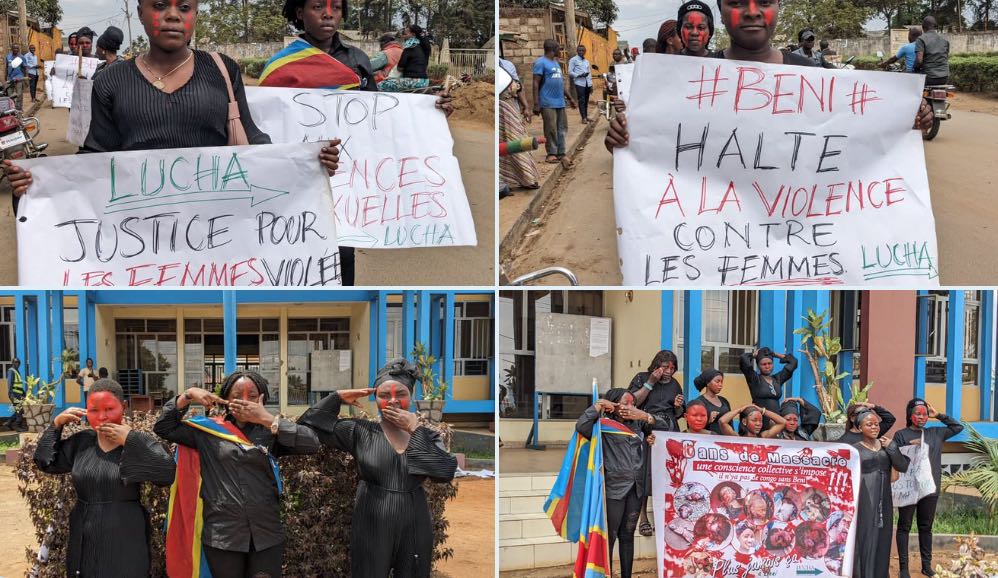
On International Women's Day, Congolese activists in the city of Beni demand justice for the women suffering violence in DRC. Photo: @luchaRDC
The current fighting has now displaced more than 10 million people, triggering another wave of indiscriminate killings, mass rape, and disease, while militia armies ransack the country’s rainforests with illegal logging and poaching.
Though the Congolese people have long been vampirized by extractivism, with over 70% living on less than $1.90/day, the DRC is actually the world's richest country in terms of wealth in natural resources.
DRC’s fossil fuels have been exploited by foreign corporations for decades. In 2023, rebels from XR University of Goma travelled thousands of kilometres across the country, mobilising communities to oppose the sale of new oil and gas blocks, most of which overlap protected areas and would be linked to the ecocidal EACOP pipeline.
Today, Goma’s activists are spending long hours caring for the massive influx of internally displaced people amid food shortages and cholera outbreaks. Others in their networks have been displaced and suffered violence and even death. For Congolese rebels, the struggle for environmental justice and the struggle against repeated cycles of violent resource plundering is one and the same.
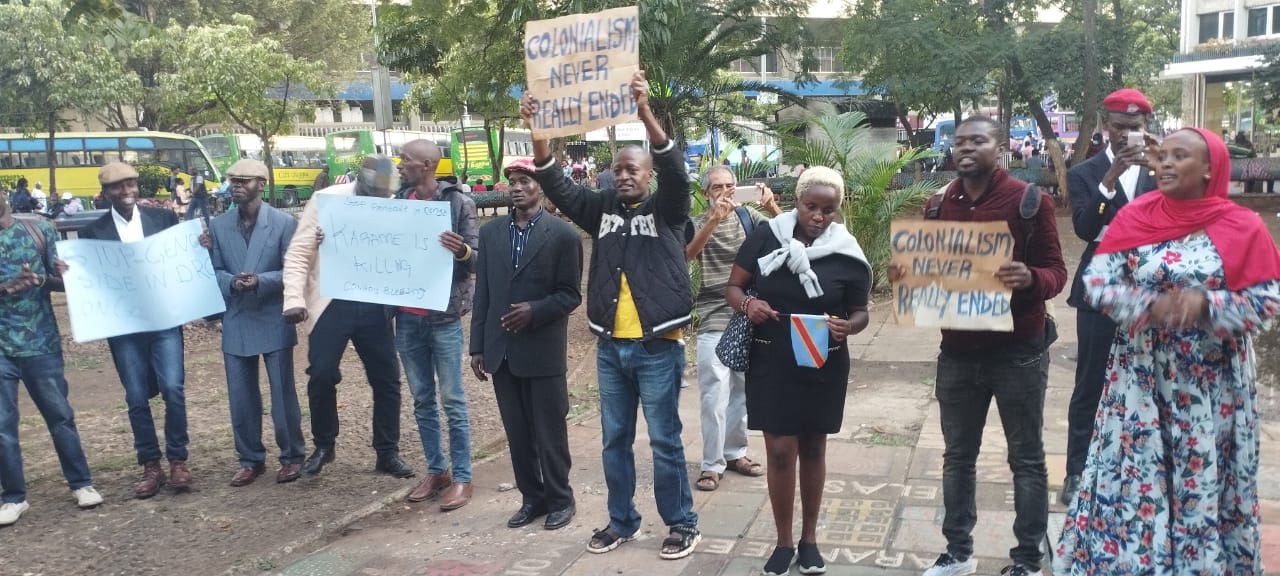
A rally in Nairobi, Kenya calls out Rwandan aggression in DRC. Photo: @luchaRDC
As global finance gears up for “green growth”, the DRC’s resource wealth has again brought violence to its door. The world's largest coltan reserves, vast caches of copper, diamonds, tin, gold, and more than 63% of global cobalt are prized by armed gangs who sell them to corporations and wealthy states wanting to manufacture phones, computers, batteries and increasingly, renewable energy technologies.
In the chaos orchestrated by the militias, minerals are more easily syphoned to Rwanda, where they are exported. The US Treasury estimated that last year more than 90% of DRC’s gold was smuggled to countries including Rwanda and Uganda, where it is refined and exported, mainly to the United Arab Emirates. Rwanda is also somehow the world’s primary exporter of coltan, despite being one of the lowest mineral producers in Africa. Without conflict minerals, the numbers just don’t add up.
In a solidarity action both outside and inside the UK’s Parliament, rebels denounced the UK government for giving Rwanda vast sums to service its extreme asylum policies, and therefore indirectly enabling the theft of $24 trillion in natural resources from the DRC.
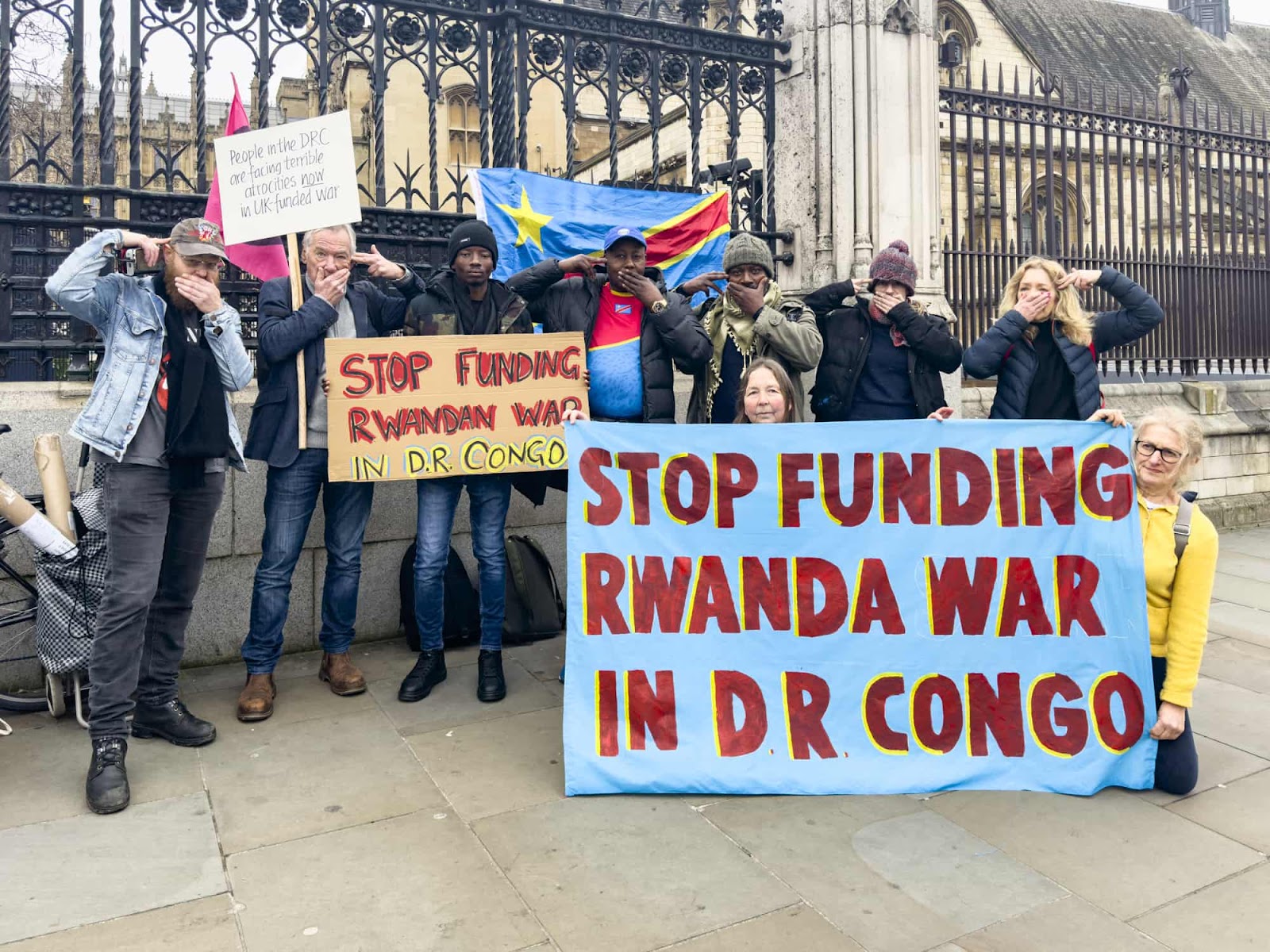
Rebels outside the UK Parliament protest the financing of violence in the DRC.
International donors see Rwanda as a useful regional power through which to carry on plundering Africa. Its economy is growing, and its infrastructure is developing at speed. Yet this growth has only benefitted a tiny elite, and the Rwandan government has become increasingly authoritarian, with mounting human rights abuses.
“We see the height of cynicism in terms of geostrategy and a policy of double standards” says a rebel in Goma. “We see what is happening in Ukraine, what is happening in Gaza. Why not what is happening in the DRC? Why aren’t there sanctions against Rwanda, which officially, visibly, supports these militias?”
Rebels in DRC are urgently calling for a green transition that puts justice first, not new revenue streams, and that dismantles colonial exploitation once and for all. Otherwise, our green transition will turn red with the blood of Congolese men, women, and children - collateral damage to enrich the same old racist elites.
Follow XR Goma University on Facebook.
Action Round Up
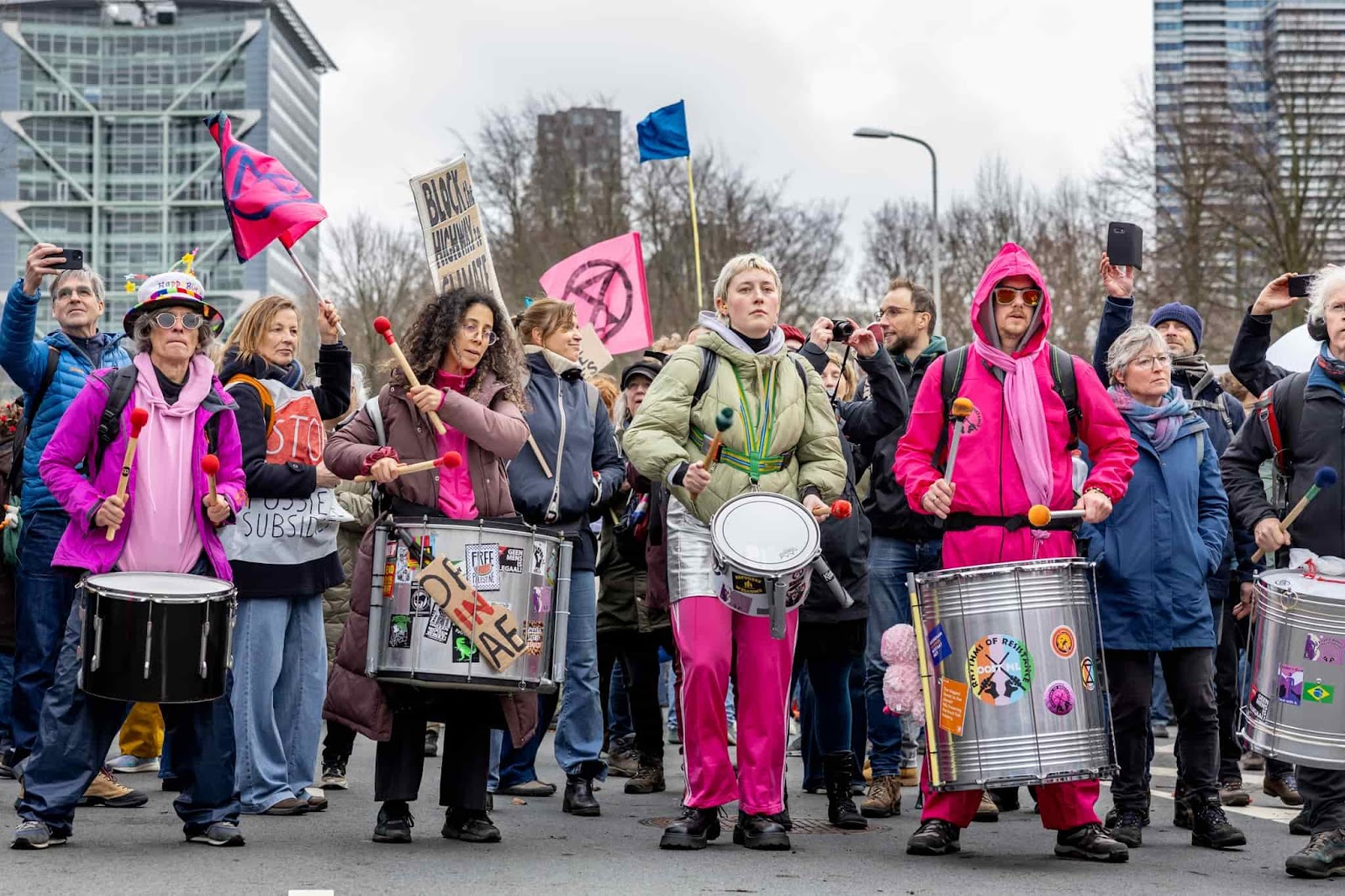
3 FEBRUARY | The Hague, Netherlands: Around 2000 rebels return to the A12 to call for an end to the vast fossil fuel subsidies paid by their government. This was the 36th rebel blockade of the motorway, but the first since the Dutch parliament agreed to reappraise and even abolish certain subsidies back in October 2023. Since then, the Dutch Senate voted against any change, and it has been business as usual. Later in the month, 40 rebels blockaded the Finance Ministry for its subsidy inaction. Another A12 blockade has been announced for the 6th April.
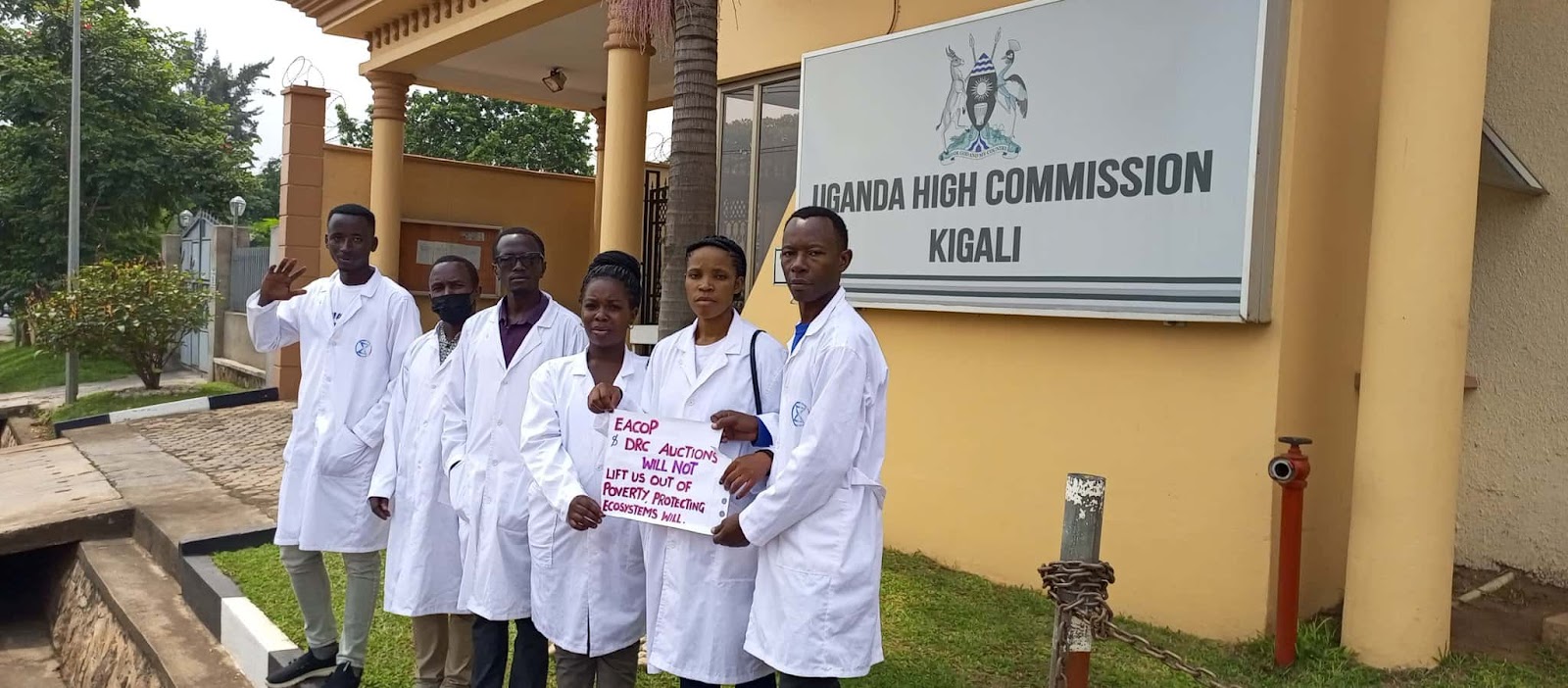
4 FEB | Kigali, Rwanda: Activists with Scientist Rebellion protest outside the Ugandan High Commission and the DRC Embassy to call for an end to both EACOP and the auctions of DRC peatlands for oil exploration.
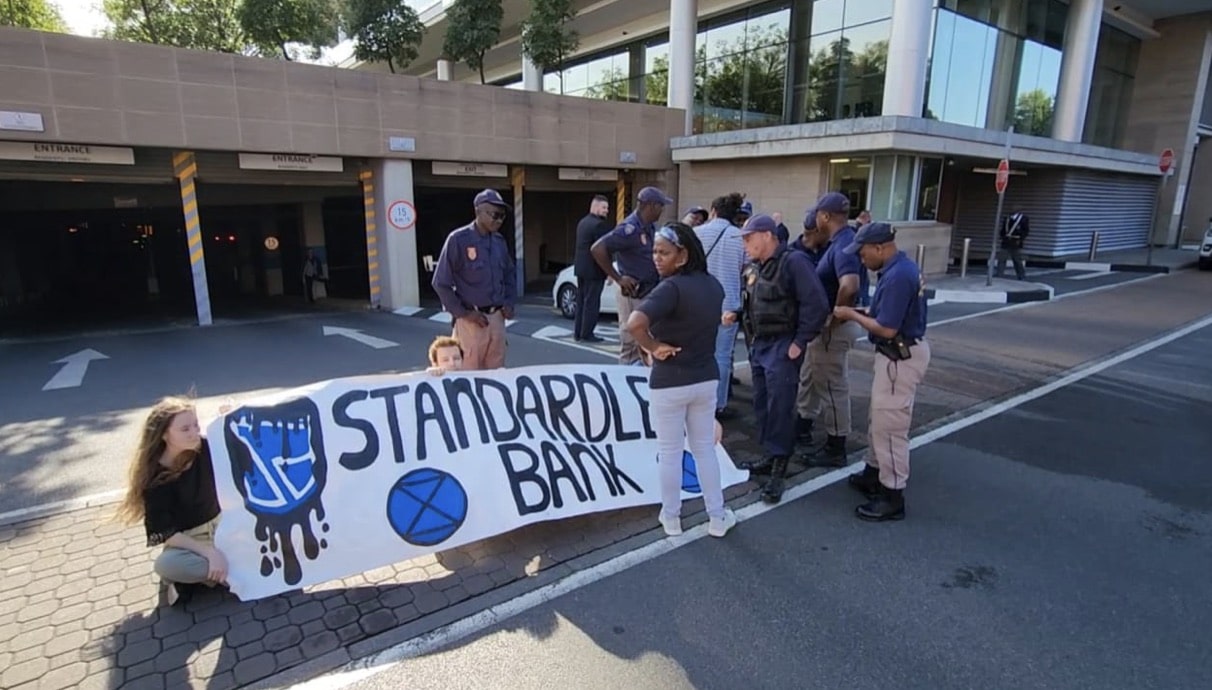
9 FEB | Johannesburg, South Africa: XR Gauteng protests outside Standard Bank’s HQ to demand it stop backing the vast oil pipeline EACOP as well as various gas and coal projects across Africa. Police swarmed the small, peaceful protest, but the rebels promised to return every Friday until the bank meets its demands.
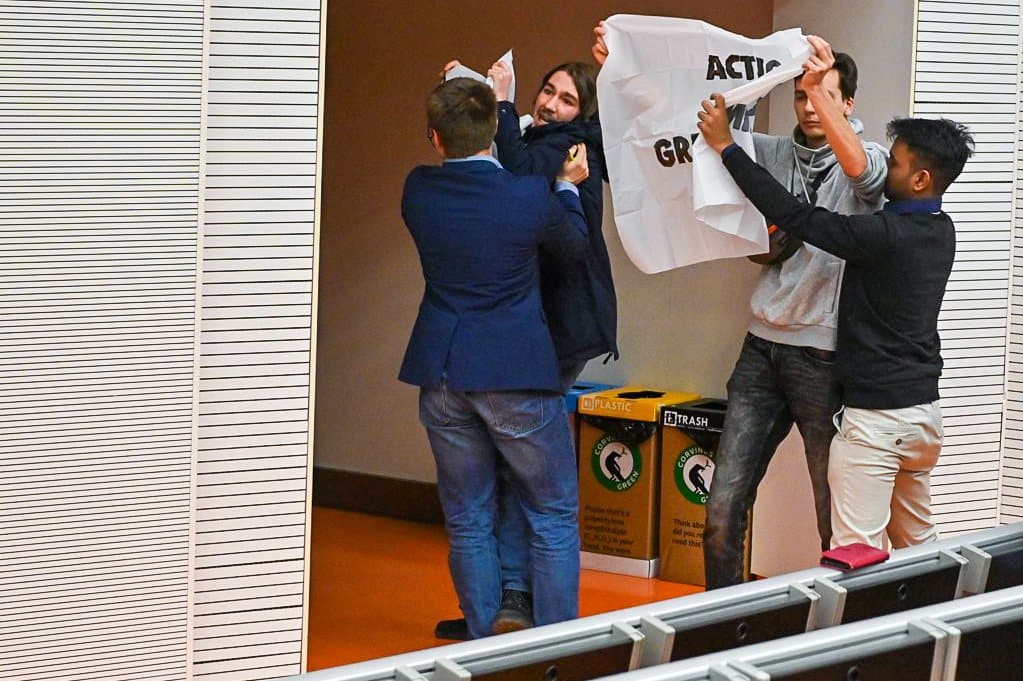
13 FEB | Budapest, Hungary: Rebels confront the president of Shell Hungary as he speaks at Corvinus University, and are (depressingly) dragged away by fellow students. Photo: Dániel Alföldi

14 FEB | Italy: XR Italy launches actions in eight cities on Valentine's Day to denounce the toxic relationship between their government and the climate. Rebels in Turin (pictured), Milan, Bologna, Treviso, Rome, Udine, Bari and Palermo used ironic street performances to remind people about the record temperatures, floods and droughts that have battered the country over the last year.
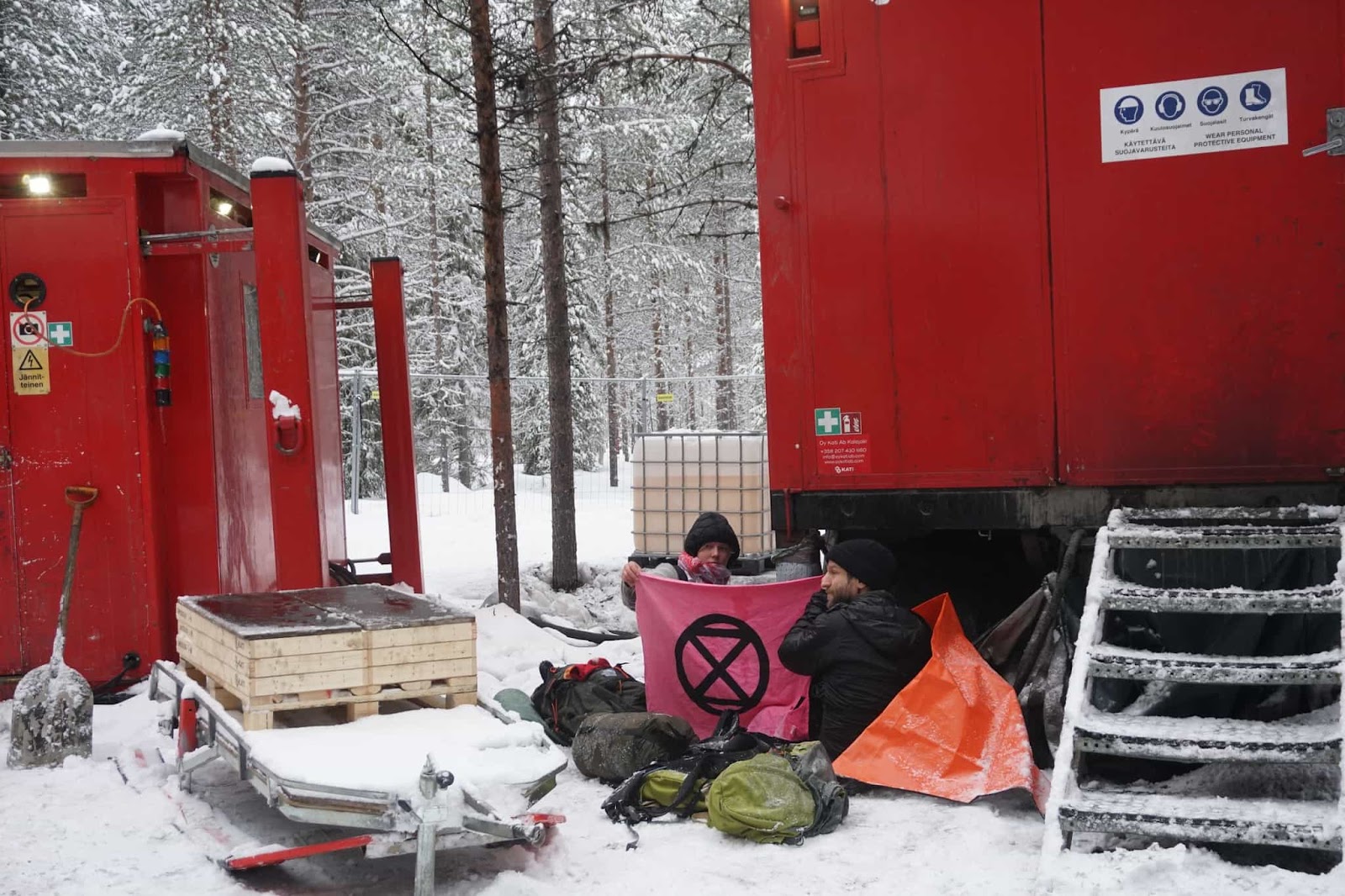
17–29 FEB | Viiankiaava, Finland: Rebels use steel tubes, locks and tripods to repeatedly shut down an exploratory drilling site in arctic wetlands in Northern Finland. The mining industry wants to extract nickel and copper from the protected nature reserve, and XR Elokapina is continuing its incredible campaign to stop them. Relaxed safety guidelines, riot fences, and constant security personnel have made their work harder, but the rebels from Finland and Sweden continue to disrupt the drill rigs, skiing to the site in teams as big as 40 and as small as one.
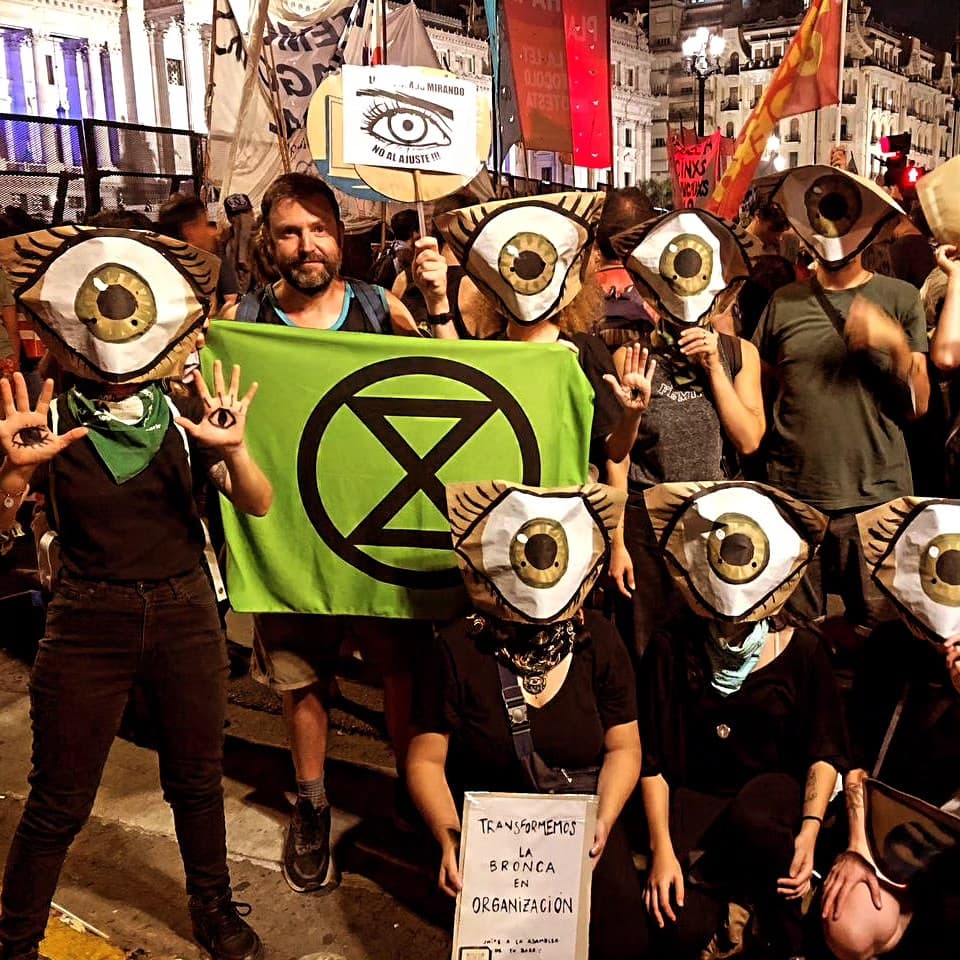
1 MARCH | Buenos Aires, Argentina: Rebels join an alliance of protesters outside the National Congress to keep a close watch on their new President during his state-of-the-union style speech. He recently called Congress a “nest of rats” after it rejected his ecocidal Omnibus law that would have let corporations plunder the country’s natural resources with impunity. Meanwhile, his severe economic cuts have led to rocketing inflation and soaring poverty across Argentina.
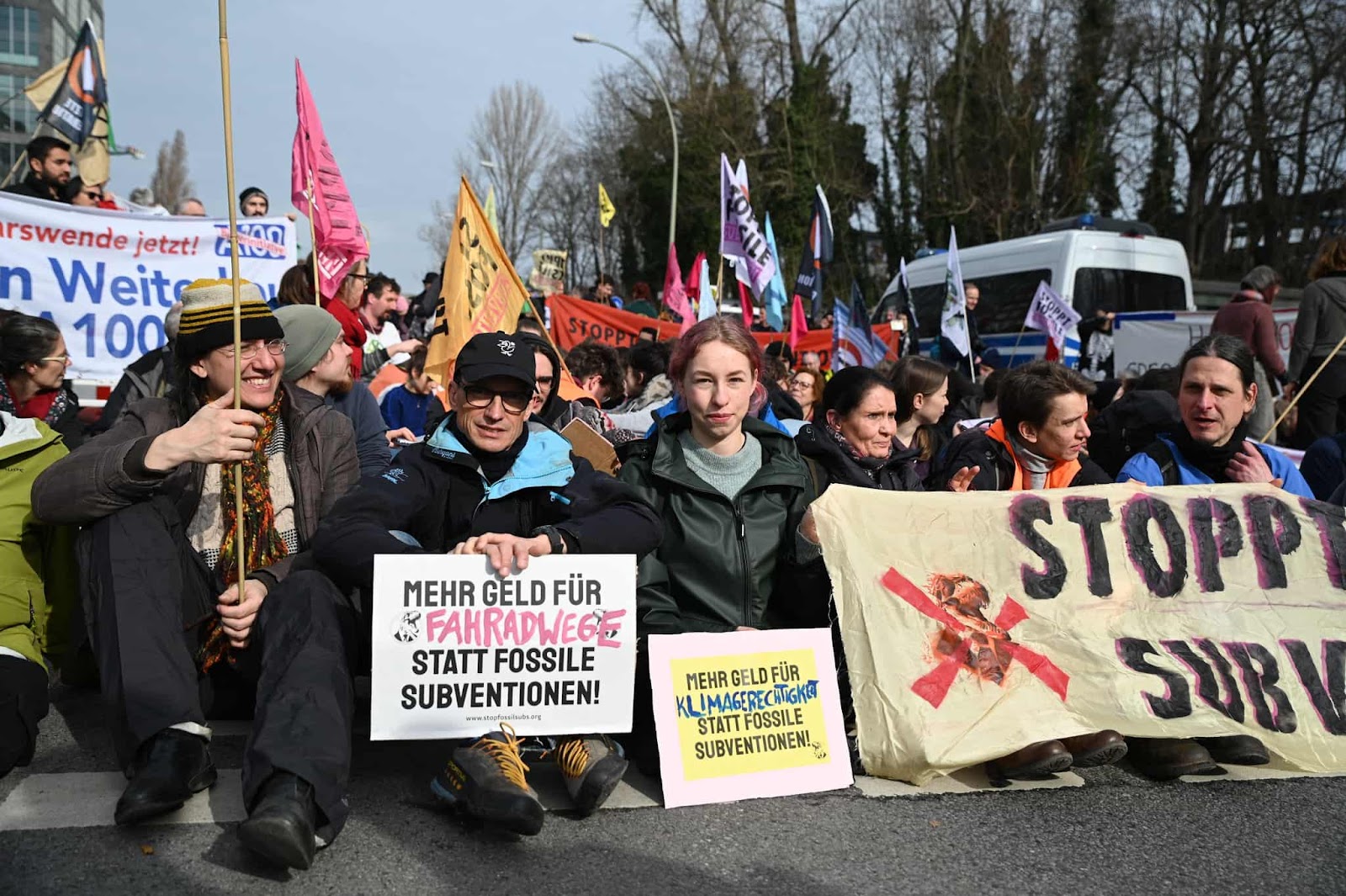
2 MAR | Berlin, Germany: Inspired by XR Netherlands’ campaign, a "Stop Fossil Subsidies" alliance, including rebels, blockade a main road. 400 activists called for an end to fossil fuel subsidies and denounced plans for a motorway expansion in the area. For every €13bn of German taxes spent on environmental protection, at least €48bn is spent on environmentally harmful subsidies.
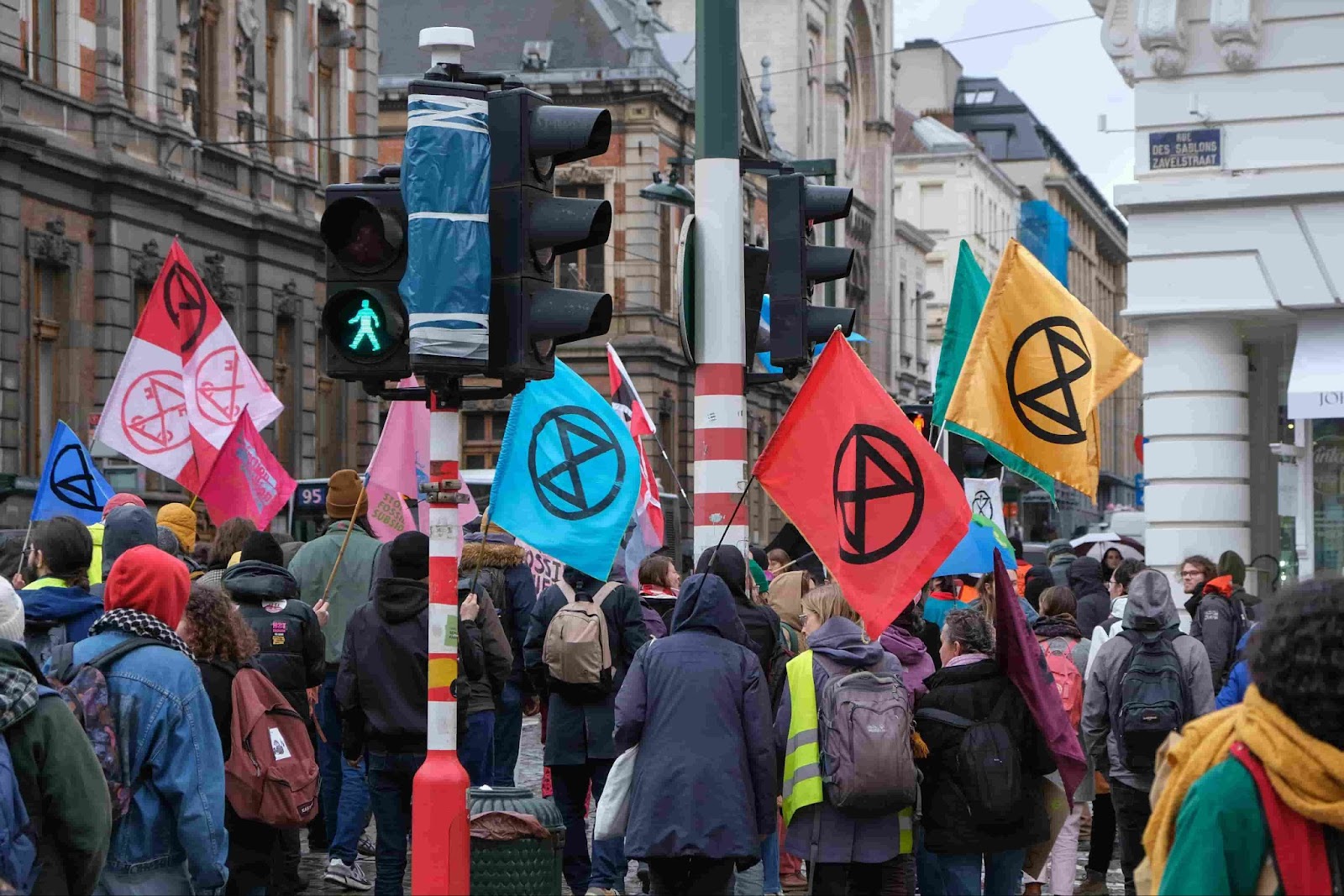
2 MAR | Brussels, Belgium: Inspired by XR Netherlands’ campaign, and joined by visiting Dutch rebels, XR Belgium also demands an end to fossil fuel subsidies! 150 rebels disrupted city traffic until they were encircled by riot police and forced onto the pavement. Elections are imminent in the country, and rebels have plans for a wave of actions until voting day. Photo: @Engrainagemedia
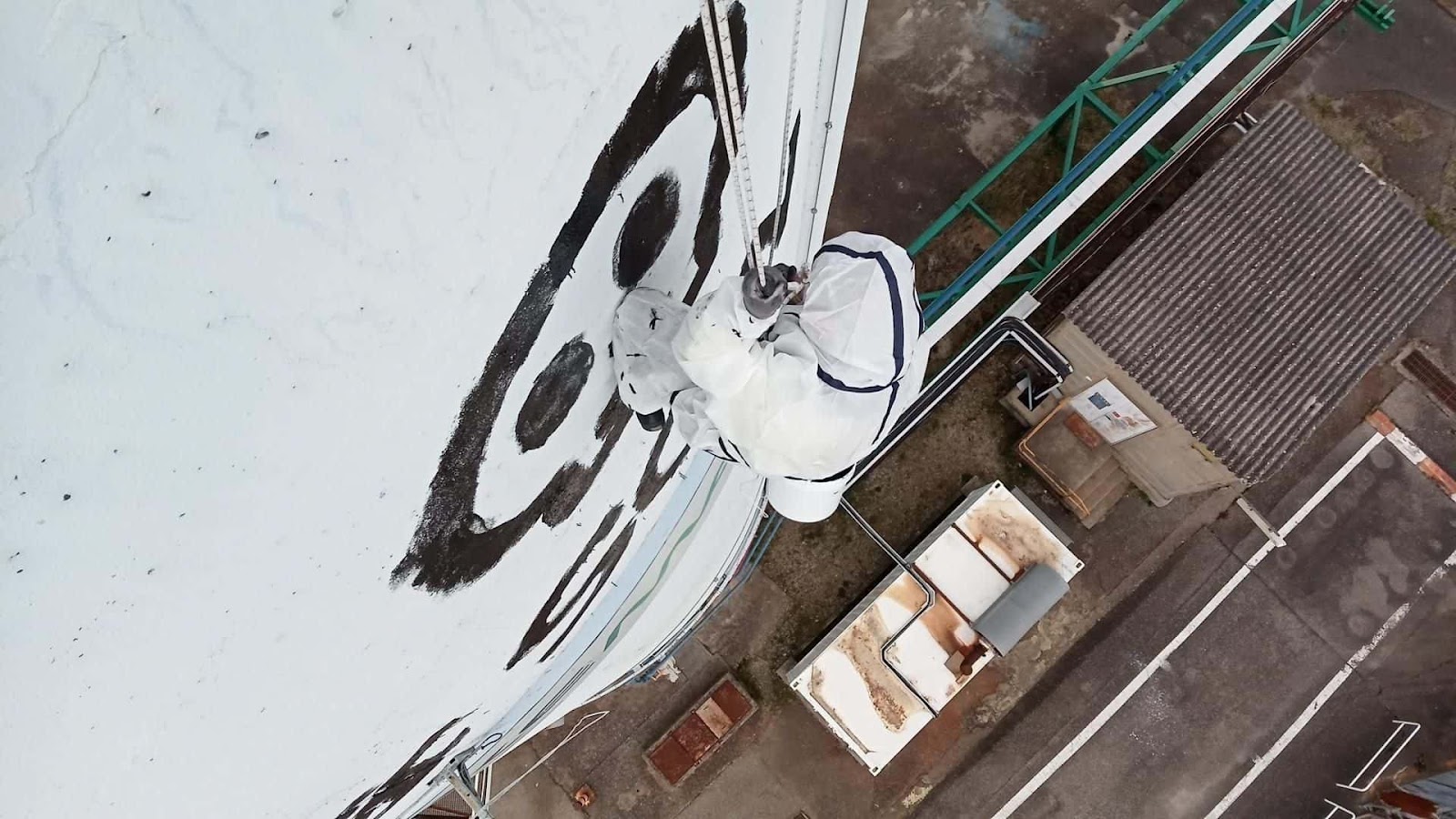
2 MAR | Lyon, France: 400 activists from XR Lyon and Youth For Climate Lyon visit Arkema, a factory that produces PFAS aka forever chemicals, which have contaminated the rivers, soil, and drinking water of the region. Activists scaled the building, dropped banners, updated the company logo, and blockaded entrances. An army of riot police arrived to protect the ecocidal company, and they used tear gas, pepper spray, and truncheons to clear the protest, causing three serious injuries.
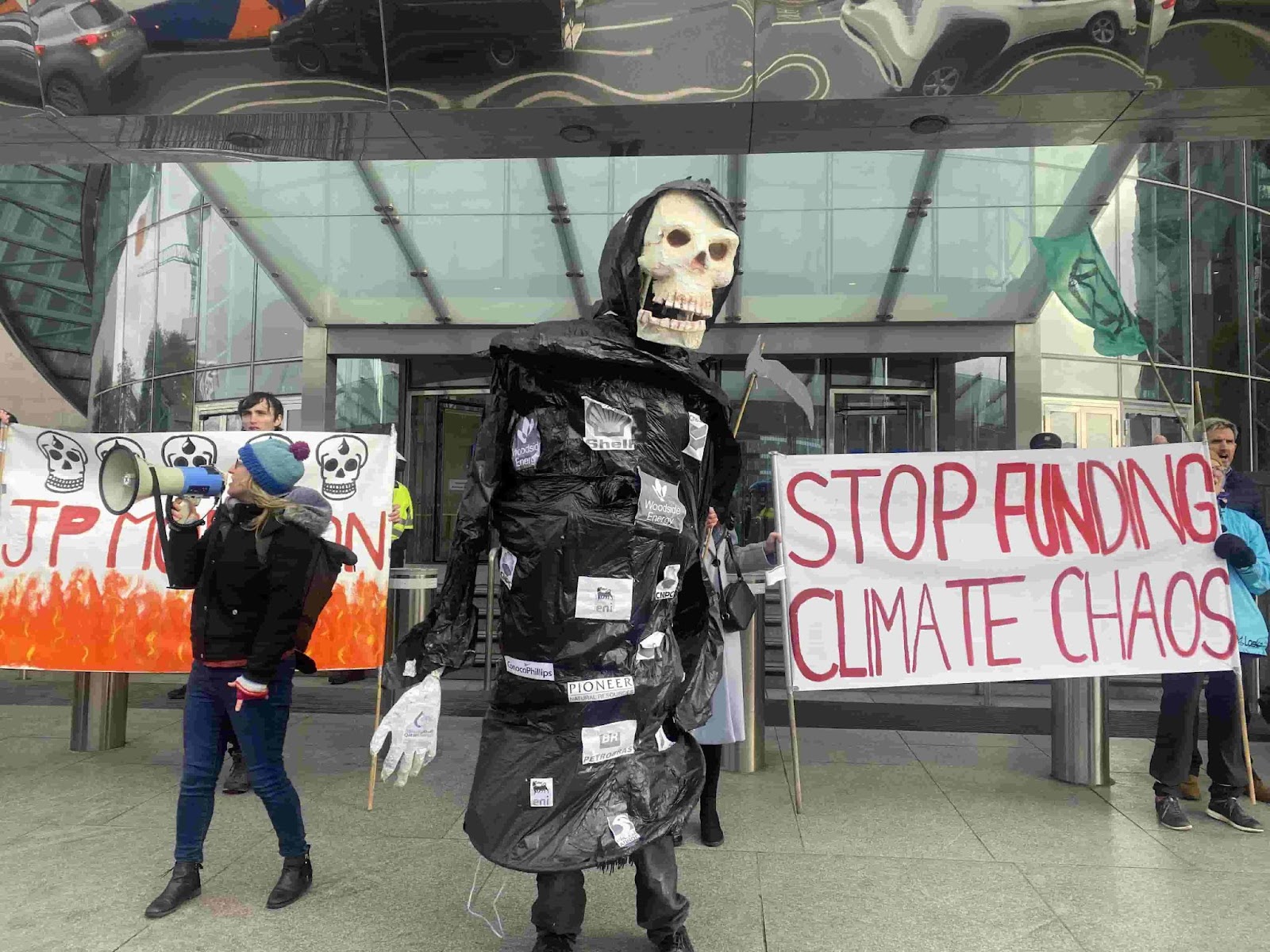
4 MAR | Dublin, Ireland: Rebels rally with the Grim Reaper outside a banking conference sponsored by JP Morgan, the world’s worst bank when it comes to fossil fuel investments since the Paris Agreement. You can read a first-hand account of the action on the XR Ireland website. Photo: E Connolly
Humans of XR:
Precious, Zambia
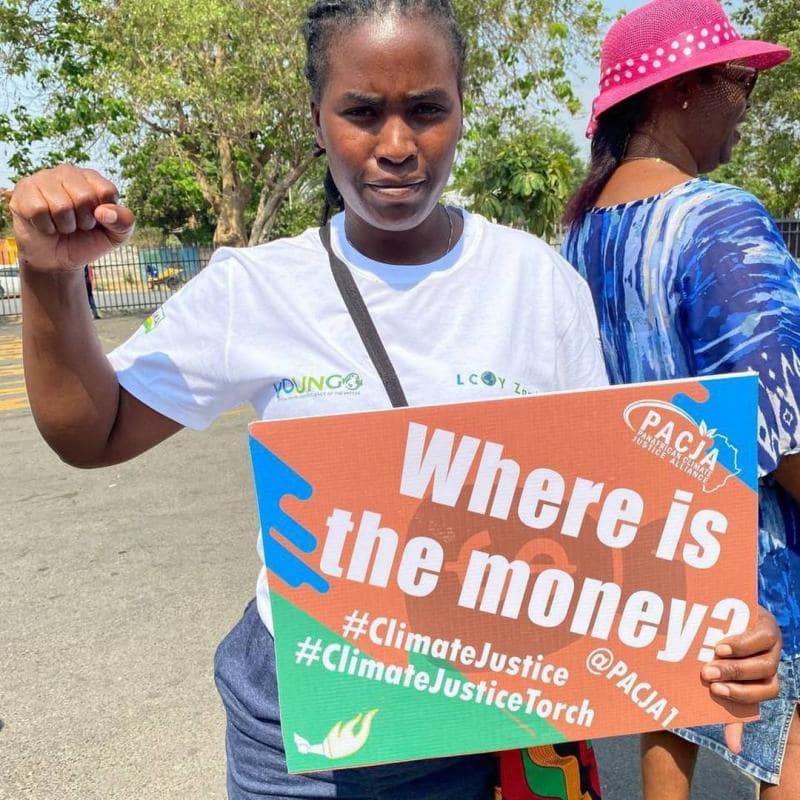
Precious campaigning for a new law to cancel debt in Lusaka, Zambia.
I set up XR Zambia in 2018, not long after Extinction Rebellion first appeared. I was not completely new to climate activism, as I had got involved with Citizens’ Climate Lobby here in Lusaka where I live.
When we first got XR Zambia up and running, many people joined us, though the last few years it has been harder to sustain big numbers. Even so, there is a core team of about 20 of us, and we work hard planning actions and educating our fellow citizens about the causes and impacts of climate change.
I have been aware of the climate and ecological crisis for a long time. I grew up in a village on the edge of a large forest, and as I got older I saw that it was becoming more and more depleted. My activism really started there, with reforestation: getting local people to plant a tree for every tree they cut down.
There has been more flooding in my home village in recent years, and my father’s house was destroyed by one particularly bad flood. Droughts are also worsening, and all of this is raising the price of food. Many people do not have enough to eat, and many girls cannot study at school as they are simply too hungry.
What feels very hard is that Zambia has contributed so little to greenhouse gas emissions, but we are suffering so badly. Anxiety is very high here, as we are facing more, and worse, droughts, floods, crop failure. Sometimes all of this makes me want to give up on activism – there is so much suffering. But then it also makes me carry on, because we must keep fighting to end this suffering and make our lives better. We have no choice.
In XR Zambia we work on many areas, including clear water access, plastic pollution, and climate education. At the moment, we are focusing a lot on debt cancellation, because a country like mine can’t do much about the climate crisis while weighed down by so much foreign debt.
More than a third of Zambia’s annual budget goes on debt repayments. So we are fighting, alongside Debt for Climate, to get this unjust debt cancelled by the IMF, the World Bank, and corporations like BlackRock.
We wanted to stage an action in central Lusaka as part of the Insure Our Future campaign, but we couldn’t go ahead as the police would not give us a permit to protest. However, I was part of a Mothers* Rebellion action on International Women’s Day, and in April we are organising a march with Debt for Climate to coincide with an IMF and World Bank meeting. We will march again on African Liberation Day in May.
The situation is very hard, but I keep fighting and hoping that we will get the debt cancelled, stop polluting the planet, and make things much better for us and for our children.
If you know (or are) a rebel somewhere in the world with a story to tell, get in touch at [email protected]
Must Reads

The ‘Yes Marbles’ join the A12 blockade in the Netherlands - suited civil servants with oil pumps for brains.
Report: The Insurers Secretly Backing the US Methane Gas Boom
The Rainforest Action Network and Public Citizen reveal how at least 35 global insurance companies are underwriting liquified methane infrastructure across the US Gulf South that, if built, will export the same yearly emissions as 239 coal plants.
Report: The Fraud of Plastic Recycling
In the same month that microplastics were found in every human placenta tested in a study, the Centre for Climate Integrity released a report on how Big Oil and the plastics industry have promoted recycling for more than 50 years, while knowing it is not a viable solution to plastic waste. How disgusting can these people get?
Music Video: Bosembo by Ben Kamuntu & Ben Man (4 mins)
This powerful song by members of Goma Slam Session, a collective of young poets and rappers from the DRC, is part of a campaign to seek justice for the crimes committed in the country from 1993 to date, including those documented in the UN Congo Mapping Project report.
Report: UN Global Resources Outlook 2024
Global extraction of natural resources will increase by 60% by 2060, with calamitous consequences for the climate and the environment. That’s the headline of this new UN report. The stripping of Earth’s raw materials has soared by almost 400% since 1970, and is already responsible for 60% of global heating impacts, 40% of air pollution impact, and more than 90% of global water stress and biodiversity loss. Seriously people, either capitalism dies or we do.
Article: Mothers* Rebellion - A View from Kenya
Mothers* Rebellion has launched their fourth global rebellion (which we’ll cover next issue) and this interview with a young mother in Nairobi gives an insight into what this movement means to, and how it can evolve with, activists in the global south.
Announcements
Earth Day: Register Your April Actions!
APRIL | Global
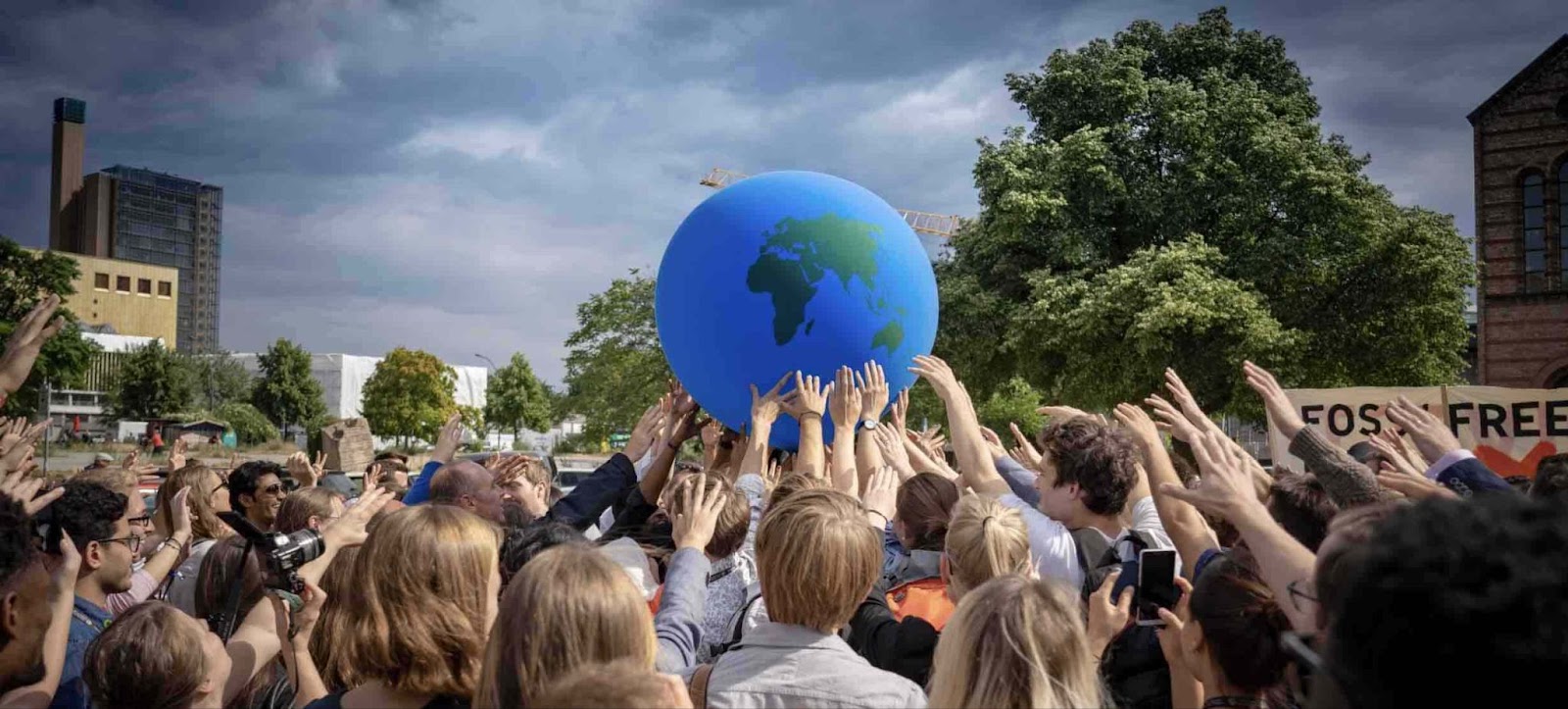
Momentum is building with Earth Day just over two months away! EARTHDAY.ORG (EDO), the global organisers of Earth Day, is seeking to showcase your work and support mobilisation to XR events throughout Earth Month.
Please register your April actions here to draw EDO activists to your events.
Contact Evan Raskin, Earth Day campaign manager, at [email protected] to discuss media highlights and potential funding support.
Plan Z Short Film
Coming Soon

Why would scientists break the law for climate change?
The short documentary film "Plan Z: From Lab Coats to Handcuffs" follows psychology professor Colin, biologist Abi, and ‘Scientists for XR’ co-founder Aaron's journeys into civil disobedience.
Watch the impressive trailer, donate to the ongoing production, and sign up for release details by heading to the film’s official website.
Thank You
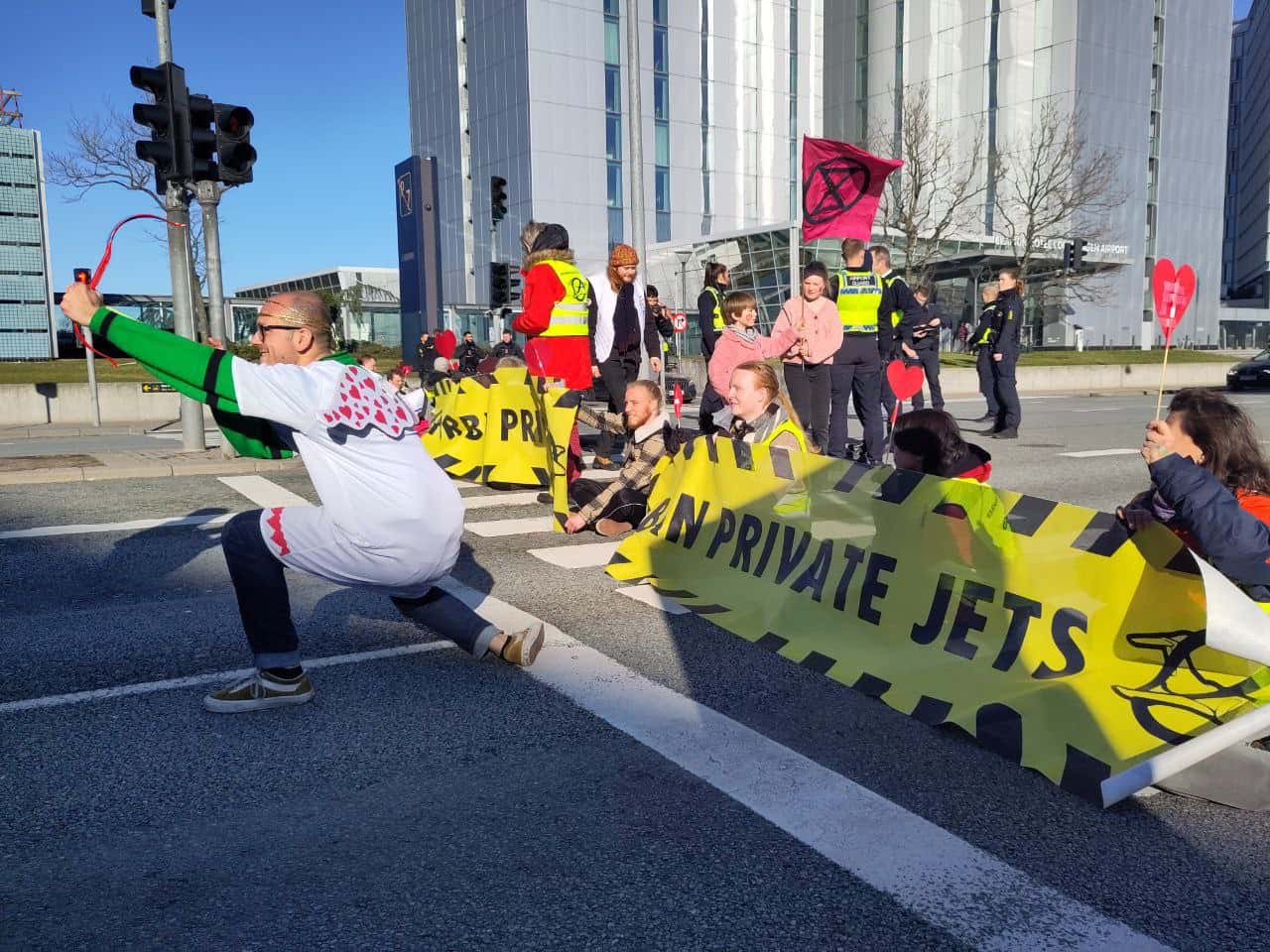
17 FEB | Copenhagen, Denmark: Filled with love and rage, rebels and activists with Scientist Rebellion Nordic stage a Valentine-themed blockade of Copenhagen Airport to demand a ban on private jets. Wouldn’t that be lovely?
Thank you for reading, rebel. If you have any questions or feedback, we want to hear from you. Get in touch at [email protected]
This newsletter is brought to you by XR Global Support, a worldwide network of rebels who help our movement grow. We need money for this crucial work.
